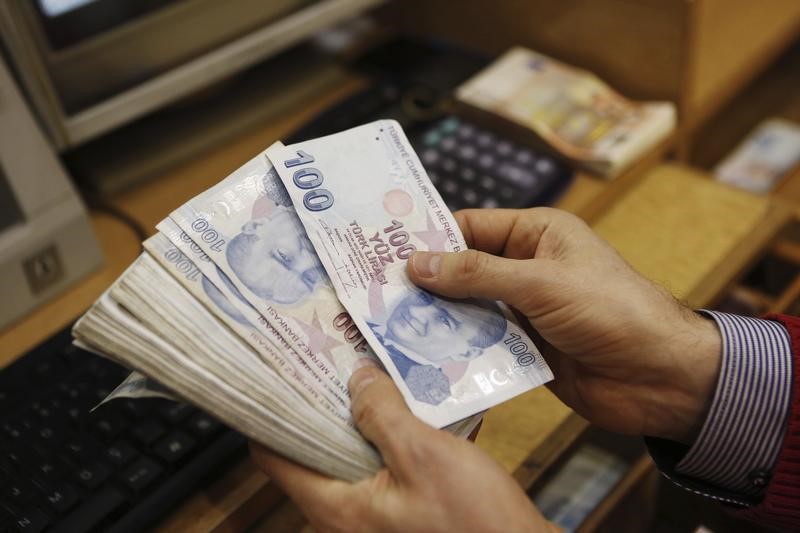(Bloomberg) -- As emerging markets take a battering from Turkey’s turmoil, sending stocks and bonds toward their lowest this year, traders are positioning themselves to ride out the pain.
Traders pushed down the value of emerging market assets Monday as Turkish assets sank. The carnage in Turkey added to an already fragile landscape amid tensions between the U.S. and other major economies such as Russia and China. While some investors say bargains are already emerging, others bet the best option is to sell stocks and bonds and put their money into cash.
Here’s what analysts and investors are saying:
- Kevin Daly, a money manager at Aberdeen Standard Investments in London:
- The almost-$800 billion investment group sold some emerging-market holdings on Monday to increase its cash positions.
- Daly sees few signs the Turkish rout will end soon and says emerging markets as a whole could be in for further pain.
- “Playing a market like this is difficult,” he said. “There aren’t any obvious safe zones.”
- Nader Naeimi, the Sydney-based firm’s head of dynamic markets at AMP Capital Investors Ltd:
- AMP increased its exposure to the yen, dollar and Swiss franc because they’re havens during tumultuous times
- He’s short the Russian ruble, Indonesian rupiah and Philippines peso and says “the risk of a market meltdown is high.”
- EM currencies might be attractive again if they fall another 10 percent, he said. For now, the only equities he’s interested in are China’s, given the nation’s current-account surplus and ability to loosen fiscal and monetary conditions if it wants to.
- Jan Dehn, head of research at Ashmore in London:
- The selloff has left emerging markets “replete with opportunity.”
- While Turkish assets probably haven’t bottomed yet, it is time to buy stocks, bonds and currencies elsewhere, he said.
- Turkey’s problems are “entirely self-inflicted and will not suddenly appear in, say, Poland or Uruguay.”
- Hans Redeker, global head of foreign-exchange strategy at Morgan Stanley (NYSE:MS) in London:
- Investors should short South Africa’s currency against Japan’s yen, targeting an 8 percent strengthening of the latter to 7.1 per rand from 7.67.
- “With ongoing weakness in Turkey, investors will have to add hedges in EM,” they said. “South African government bonds remain the top OW duration in the foreign portfolio. This means foreigners have to buy USDZAR to hedge their bond position and reduce overall EMFX beta risks.”
- Nicholas Ferres, chief investment officer at Vantage Point Asset Management in Singapore:
- The hedge fund has added exposure where there’s been an “emotional overreaction,” he said.
- Ferres is betting on a rebound in the currencies and stocks of India and Indonesia and says the dollar’s strength is “well advanced.”
